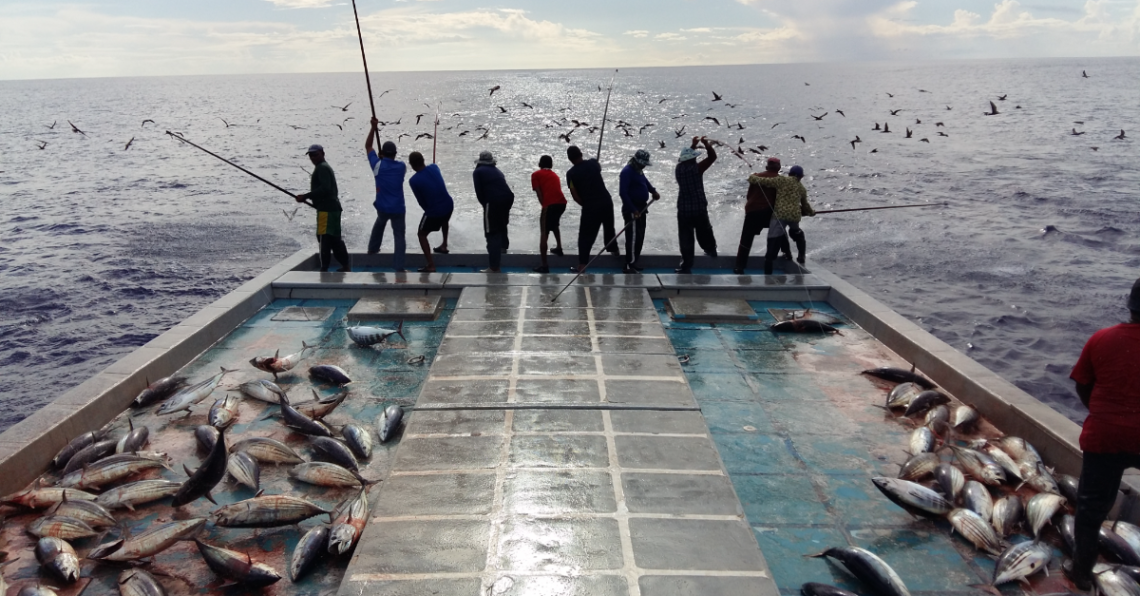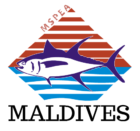
Pole-and- line skipjack fishery is the largest in the Maldives. It has its roots in culture in tradition dating back hundreds of years. Current catches are around 100,000 MT annually. Some 60% of the catch is exported in frozen whole round and in the processed form. While the majority of the former is exported to Thailand, as raw material, the processed products are exported almost exclusively to the developed markets of Europe, USA and the UK where retailers demand evidence for its sustainable credentials.
The Maldives tuna fishery had always enjoyed a wide-acceptance as environmental sustainability, by demonstrating its highly selective nature fishing, with no bycatch or discards or interactions with endangered, threatened and protected (ETP) species. It always carried the ‘dolphin friendly’ logo on its cans since it started exporting to theUK market.
The work of Greenpeace on the environmental and ecological damage in the mid 2000 heightened interest, in particular of the UK retailers in sourcing sustainably caught tuna. This resulted in UK buyers demanding that Maldives tuna fisheries be certified.
The pre-assessment of the Maldives tuna fishery MSC certification was initiated by Horizon Fisheries Pvt Ltd and later transferred the task to the MSPEA. With successful pre-assessment, the pole-and- line fishery entered MSC certification in 2009. In the absence of any model-based a stock assessment of the Indian Ocean skipjack tuna at the time, the Principle 1 components were assessed using a risk-based framework, which was not acceptable by the MSC. The assessment had to be suspended until a model-based assessment of the Indian Ocean skipjack was conducted.
The Maldives, with support from IOTC allowed to standardize the Maldives skipjack catch per unit effort (CPUE) series, necessary for a model-based stock assessment. The first ever, stock assessment of the Indian Ocean skipjack tuna was done at the Working Party on Tropical Tuna held in October 2011 on Paradise Island Resort. The assessment results which showed that the skipjack stock was healthy allowed the resumption of the MSC Certification in early 2012. The seven-year journey for MSC certification of the Maldives skipjack pole-and-line tuna was concluded in October 2012 successfully certifying the fishery with EIGHT conditions.
These eight conditions included three from Principle 1, which required IOTC wide collaboration. These included setting stock reference points (targets and limits) and harvest control rules and tools and adopting processors to support the implementation of harvest control rules. In addition, conditions were met and closed during the first five-year cycle of the MSC skipjack pole-and-line skipjack certification. The fishery entered into the second cycle in the early 2018, this time with only one condition, PI 3.2.3 data compliance with MSPEA and the Ministry of Fisheries, Marine Resources and Agriculture is closely working on.
MSPEA works very closely with the Ministry in issues relating to maintenance of the MSC certification. A Certificate Maintenance Committee has been established under an MSC Certification Retention Fund where exporting members of the MSPEA are charged with a small commission towards the maintenance work. The fund is being used to support some of the Ministry’s work and also support the auditing and re-assessment fees by the Conformity Assessment Body (consultant).
